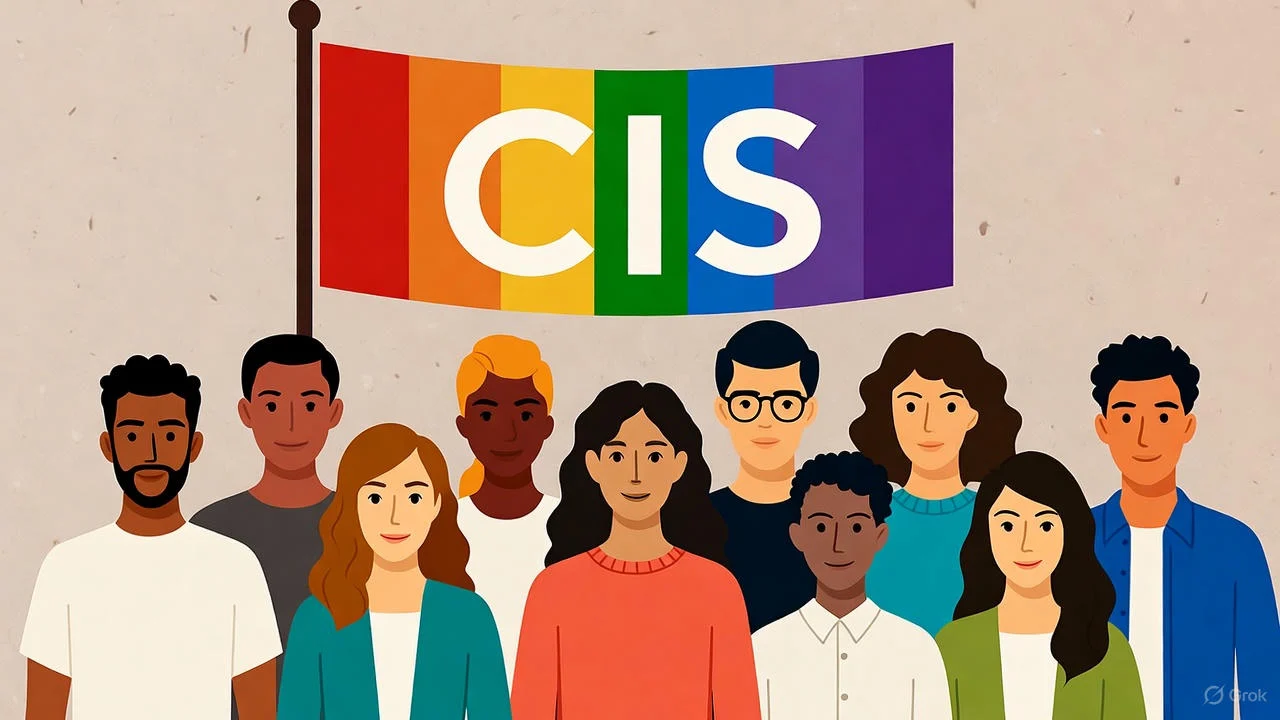Ever seen someone describe themselves as “cis” on social media or in a discussion about gender identity — and wondered what that actually means? 🤔
In a world where conversations about gender, identity, and inclusion are more common than ever, knowing what CIS means helps you understand and communicate with clarity and respect.
Whether it’s in online bios, workplace policies, or educational materials, “CIS” is more than a buzzword — it’s a term that explains how someone identifies in relation to their birth sex. Let’s unpack its meaning, origin, and usage in simple terms 👇
💬 Definition & Meaning
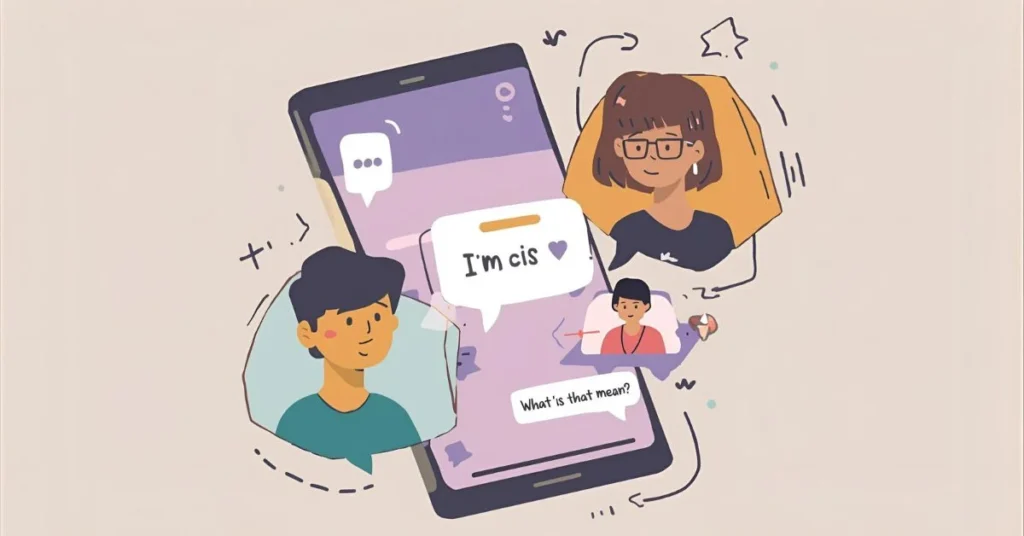
CIS is short for “cisgender.”
It describes someone whose gender identity aligns with the sex they were assigned at birth.
✅ In simple terms:
- Born female → identifies as woman → cisgender (cis)
- Born male → identifies as man → cisgender (cis)
The term contrasts with “transgender”, which means a person’s gender identity differs from their birth sex.
👉 Think of it like this:
“Cis” = same side.
“Trans” = across to the other side.
So, being cisgender means your gender identity is on the same side as your biological sex — and that’s it.
🕰️ Background & History
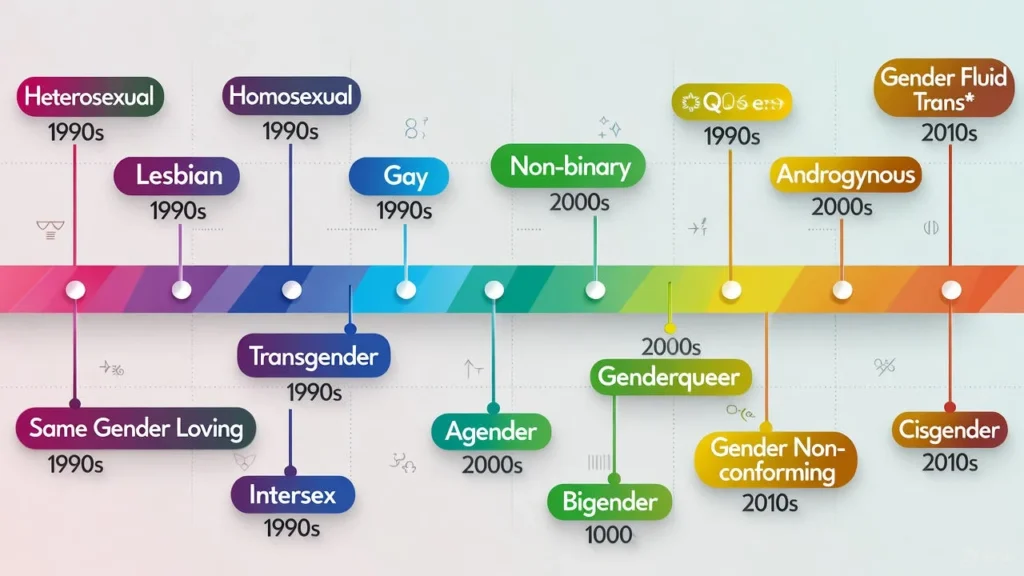
The prefix “cis-” comes from Latin, meaning “on this side of.”
It’s the opposite of “trans-”, meaning “on the other side of.”
The term “cisgender” first appeared in academic papers in the 1990s, when researchers needed a neutral term to describe non-trans people — without framing “trans” as the exception.
Over time, “cis” moved from scholarly discussions into mainstream conversations, social media, and LGBTQ+ communities.
By the 2010s, it became part of inclusive language used in:
- Workplaces 🏢
- Schools 🎓
- Activism 🌈
- Media discussions 📰
Today, it’s recognized worldwide as a standard gender descriptor, not a label or judgment.
📱 Usage in Various Contexts

💬 Online & Social Media
“She/Her | Cis | Ally 🌈”
Used in bios to show identity and inclusivity.
💼 Workplace Discussions
“Our policy supports both cis and trans employees equally.”
🎓 Education
“Cisgender students may not face the same experiences as trans students.”
🧑🤝🧑 Everyday Conversation
“I’m cis — my gender matches the sex I was born with.”
⚠️ Common Misconceptions & Clarifications
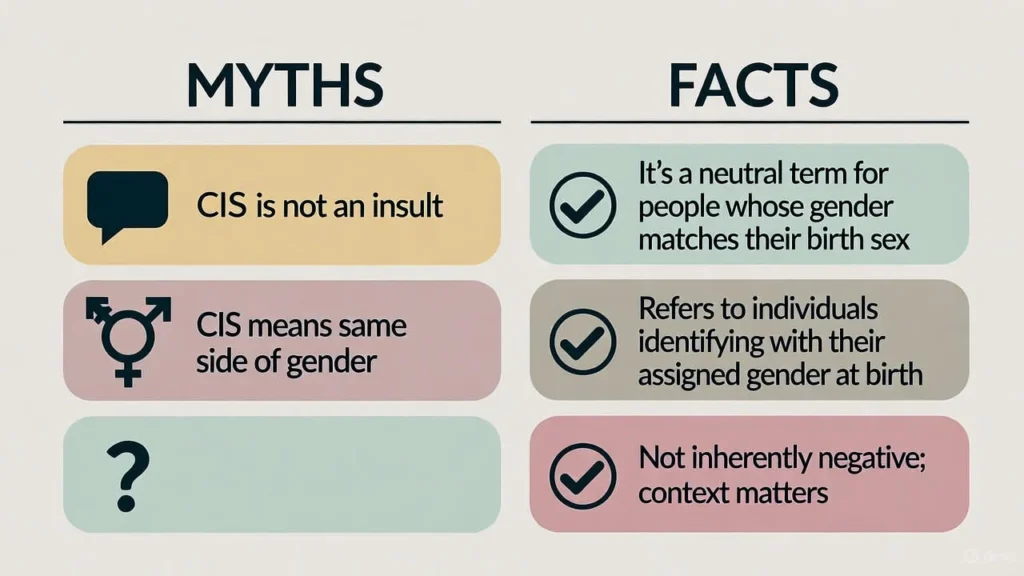
| Misconception | Clarification |
|---|---|
| CIS is an insult | ❌ It’s descriptive, not derogatory. |
| CIS = straight | ❌ “Cis” is about gender identity; “straight” is about attraction. |
| Only activists use it | ❌ It’s used in education, workplaces, and policies. |
| You must identify as cis | ✅ Only if it feels accurate to you. |
🔄 Similar Terms & Alternatives
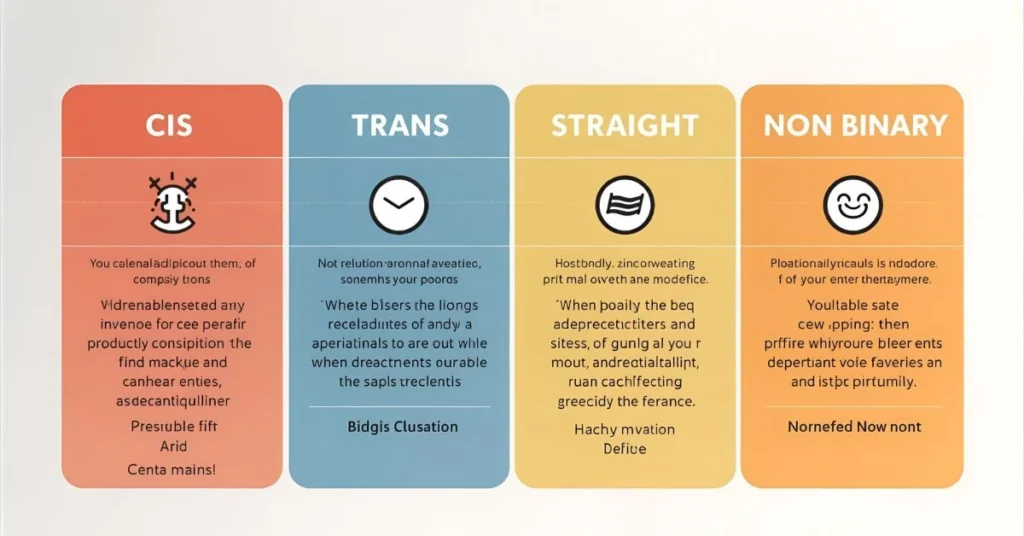
| Term | Meaning | Category |
|---|---|---|
| Cisgender | Gender identity matches birth sex | Gender Identity |
| Transgender | Gender identity differs from birth sex | Gender Identity |
| Nonbinary | Gender identity beyond male/female | Gender Identity |
| Genderqueer | Challenges binary gender norms | Gender Identity |
All of these are neutral, descriptive terms that help clarify how people experience their gender identity.
💬 How to Respond to This Term
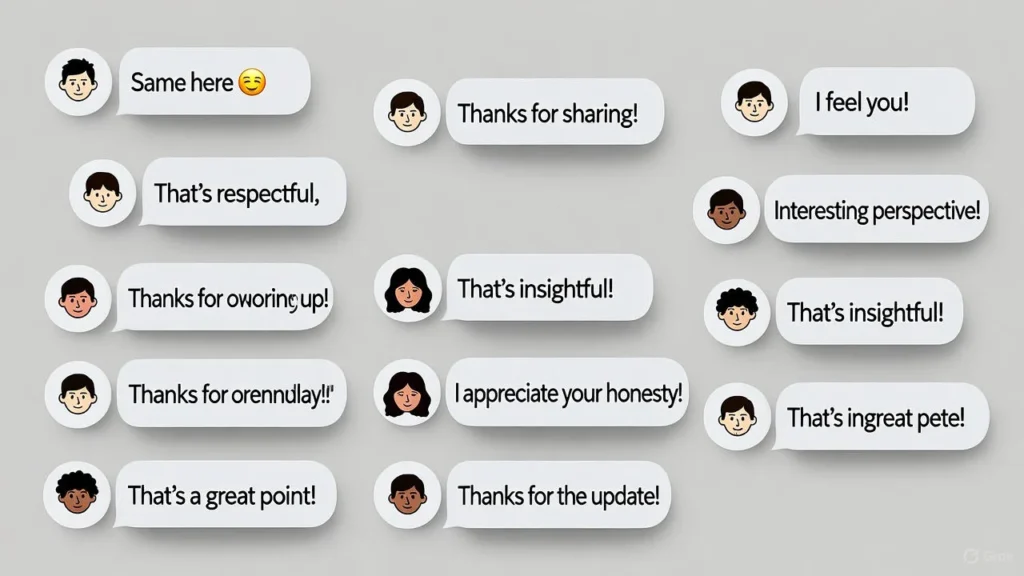
When someone says they’re cis:
✅ Respectful & Curious:
“Thanks for explaining — that makes sense.”
🤓 If You Want to Learn More:
“Can you share what being cis means to you personally?”
🚫 Avoid Saying:
“Why label it?” — because “cis” isn’t a label, it’s a descriptor like “tall” or “left-handed.”
🌍 Regional or Cultural Differences
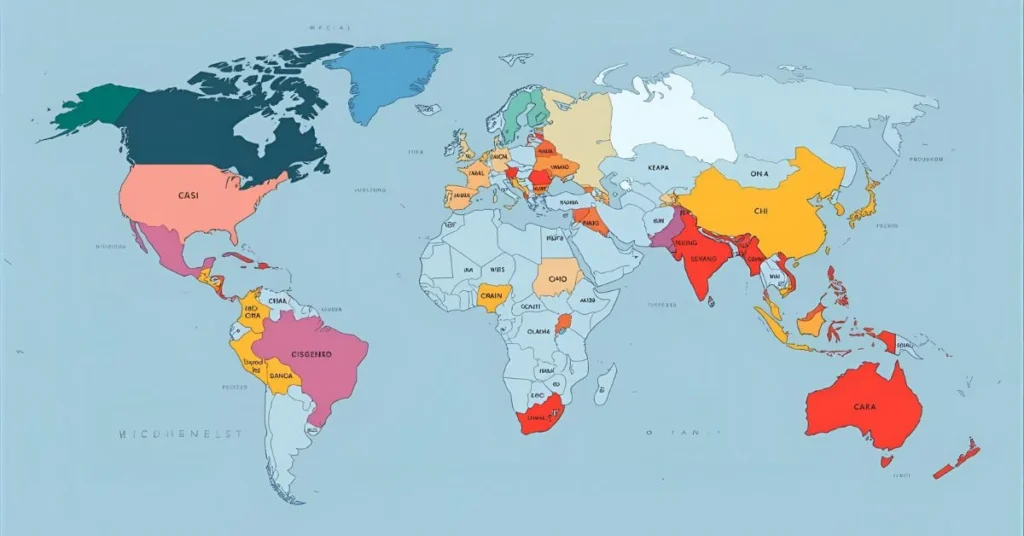
- Western countries (US, UK, Canada): Commonly used in DEI and social awareness.
- Asia & Middle East: Less common; often replaced by traditional terms like “biological male/female.”
- Latin America: Gaining visibility in education and activism circles.
The meaning stays consistent globally — someone whose gender identity aligns with their sex at birth.
⚖️ Comparison with Similar Terms
| Term | Focus | Related To | Example |
|---|---|---|---|
| Cisgender | Same as birth sex | Gender | Woman born female → woman |
| Transgender | Different from birth sex | Gender | Man born female → man |
| Heterosexual | Attraction to opposite gender | Sexual Orientation | Man attracted to women |
💻 Usage in Online Communities
On platforms like Reddit, TikTok, and X (Twitter), the term “CIS” is often used to clarify gender identity respectfully.
“As a cis guy, I want to support trans rights.”
It’s not a trend — it’s a neutral and inclusive word to describe identity in discussions that value equality.
🚫 Hidden or Offensive Meanings
“CIS” isn’t offensive.
However, tone and context matter — if used mockingly, it can sound dismissive.
✅ Neutral:
“She’s cis, and he’s trans.”
❌ Negative tone:
“You wouldn’t get it, you’re just cis.”
The word itself is neutral — it’s how people use it that changes tone.
💼 Suitability for Professional Communication
✅ Appropriate in HR, diversity, and policy documents.
❌ Avoid slangy use in official communication — use “cisgender” instead.
Example:
“Our organization ensures equal rights for cisgender and transgender staff.”
❓ FAQs (Schema-Ready)
Q1: What does CIS mean in gender identity?
A1: CIS means a person whose gender identity matches the sex they were assigned at birth.
Q2: Is CIS the same as straight?
A2: No. CIS describes gender identity, while straight refers to sexual orientation.
Q3: Is CIS an offensive term?
A3: Not at all. It’s neutral and descriptive.
Q4: What’s the difference between cis and trans?
A4: Cis = same gender as birth sex. Trans = different gender from birth sex.
Q5: Should I call myself cisgender?
A5: Only if that term feels accurate for your identity.
🧩 Conclusion
So, what does CIS mean?
It simply refers to people whose gender identity aligns with their birth sex — nothing more, nothing less.
Understanding “cis” helps create more respectful, inclusive communication, both online and offline.
After all, language shapes how we see and respect one another 🌈

